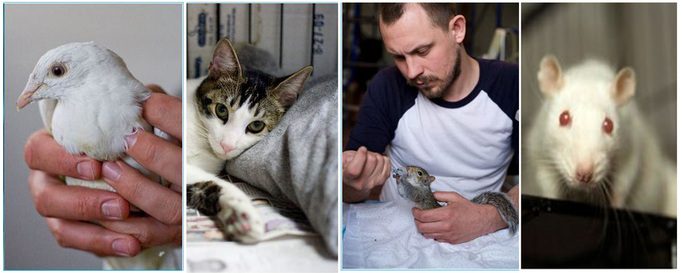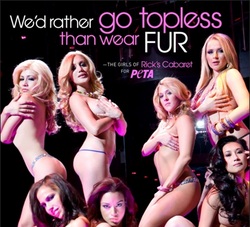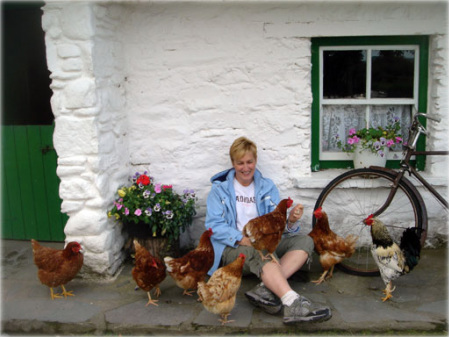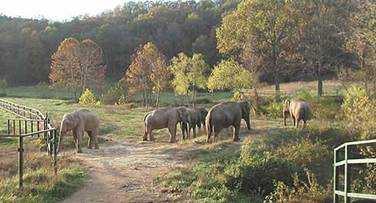PAnimal exploitation happens every day. It takes many forms, from factory farming and laboratory testing, to animal trafficking, zoos, and circuses. Then there are those who abuse and neglect them. For many animals, the world of human desire means a life of mistreatment for them soley based on the social prejudice toward whatever form their body happens to take. This global problem is so vast and so largely ignored by so many, so to even begin to approach it can seem overwhelming to say the least. But there are those who dare.
Rescue organizations play a vital and pivotal role not only in saving the lives of animals and offering them a haven for rest and rehabilitation, but also in raising awareness to the plight that animals face every day in a world so absolutely dominated by humans and their will. Empty Cages Collective, a rescue organization in NYC, is one such group, taking in a large range of animals that, for various reasons, need their help. I recently had the opportunity to sit down and interview PJ McKosky, the head of ECC, for an inside look at the important and challenging work that goes in to saving the lives of those in need:
VPO: What made you want to get involved in animal rights activism?
PJM: I don't know if it was ever a choice for me. I feel more like I was presented with a ethical imperative and could only say yes. I grew up in Southwestern Pennsylvania very much in love with nature and feeling very connected and concerned with animals from a young age. When I was twelve years old I began volunteering at a all-volunteer wildlife rehabilitation and rescue where I saw many animals who had been horrifically injured and harmed by human greed, carelessness, callousness and ignorance. Mallard ducks who had their legs ripped off by leg hold traps, flying squirrels who were injured but not killed by rat "snap" traps, aquatic birds with horrible injuries from fishing lines and tackle and other animals who were shot, poisoned by pesticides, entangled in litter and some stolen from the wild to be made into "pets". Seeing these victims every week really radicalized me. I quickly became a vegetarian and eventually a vegan. Everything in the world seemed to be forcing me to be more involved and more outspoken about these issues.
I remember one day when I was about 13 I got a package of informational materials in the mail from one of the large National animal rights organizations and in it was a video of fur farms and trapping. I had never seen anything like it. Minks having their necks broken, foxes and chinchillas being anally and vaginally electrocuted, coyotes having their chests stomped on until they died and beavers being drowned in painful underwater traps... and I remember being so angry and shocked at the degree of cruelty and ugliness in the world... and vowing to never stop trying to do something to make things right for animals.
VPO: How did ECC get its start and what made you want to run your own rescue?
PJM: Empty Cages Collective started more organically than "wanting" to start my own rescue. I had just moved back to Brooklyn from San Francisco where I was working on forest protection issues, as well as being involved in some local animal rights work in the bay area (and doing work from a distance with the animal rights group I helped start in Pittsburgh, Pennsylvania)... when I found myself with a really strong drive to want to do something hands-on. Empty Cages started as a Trap-Neuter-Return group who was focused on sterilizing and providing veterinary care for as many feral, free roaming cats as possible. However, that work quickly blossomed into additional work... dozens of starving white doves who had been released at a wedding in Queens, left for dead and in need of rescue, rats who a laboratory was "finished with" and had planned to kill the animals if we wouldn't take them, game roosters who were exploited in illegal fighting rings who, once seized by Animal Care & Control would only be killed... we took all of these animals and provided care for them and found eventual placement. We also filled a need for beings who had no other hope.
VPO: On average, how many animals do you have at the rescue?
PJM: We have a shelter space, as well as a number of foster homes throughout the city. At any given time we have over 100 rescued animals in our care.
VPO: What types of animals have you helped?
PJM: Dogs. Cats. Hamsters. Gerbils. Chickens. Squirrels. Opossums. Woodchucks. Rabbits. Parrots. Snakes. Rats. Lizards. Turtles. Pigeons. Doves. Tarantulas. We help who we can, when we can (meaning when we are able to provide care with the limited resources we have). Animals come in lots of shapes and sizes with specific individualized and species-specific needs, but when they are facing cruelty or unnecessary killing: they are equally worthy of getting a helping hand. I only wish we could do more for more individuals.
VPO: What are some of the most memorable experiences you've had at ECC?
PJM: Our work is constant beauty and constant misery--and simultaneously.
We've had stray kittens come in with their entire bodies covered in wounds that were filled with flesh eating maggots... the kittens seeming like they were moments from death... to turn around and treat those animals medically and get them veterinary care... and have them placed in awesome, loving homes. We've had a python, Claudia, who was abandoned in the Bronx with wounds so severe and infected that you could see entire pieces of bone in the deep, long wounds... recover from the veterinary and nursing care we've provided for her. We've rescued cats who tested positive for feline leukemia and were scheduled to be killed only to have their immune systems fight off the virus and end up as completely normal and healthy cats who can be placed in a normal adoption situation. We've been able to medically treat and release injured and ailing pigeons and other birds who other wildlife "rescue" centers said were not salvageable and should be killed from giving them extra time and medical care.
The successes remind us to keep fighting for other animals because they need us too. The horrors which are equally memorable remind us of the need to try harder and to keep fighting still.
VPO: Name some of the problems or issues you've come across working to rescue animals:
PJM: There is a constant bombardment of problems that get in the way of helping animals. Institutionalized violence in the form of archaic policies that force animals to be killed in the face of life saving alternatives. There are animal rescue organizations who serve meat, dairy and eggs at their fundraisers and events that only cause more animal suffering and killing under the guise of helping animals. Other organizations who identify as "no kill" (sic) kill completely rehabilitatable animals who would have a quality of life if given the chance like cats who test positive for feline leukemia and FIV, pigeons with wing injuries that prevent normal flight, and dogs with treatable behavior problems. Being bombarded with the inconsistencies and absolute commitment to outdated ways of perceiving and treating animals by people who supposedly care can be overwhelming. The biggest problem facing animals (and probably all social justice causes) is not the people who perpetuate the violence and cruelty in the world, but the people who know terrible things are happening, allegedly believe and want change and yet do nothing or very little. I think inaction and underlying apathy and self-absorption in culture creates huge roadblocks for getting things done for animals in need, as well as others. There is a desperate need for change in this realm.
VPO: What are some of the ways people can help out ECC directly, even if
they aren't in the area?
PJM: Empty Cages Collective is in constant need of three things and in this order: Money, Volunteers & Adopters. We are an all-volunteer group who runs on donations. Our only way to pay for supplies, food, veterinary care is because of the generosity of individuals. People can make donations through our website: www.emptycagescollective.org/donate if they so desire. We also have an Amazon Wish List with many of the products that we need to do our work. People can buy a gift for the animals by checking it out at: https://www.amazon.com/gp/registry/wishlist/266L95367IP8Q/ref=wl_web
The other way people can help if they aren't local is to get active in general. Get involved with local rescue work. Foster animals who would otherwise get killed in your area, volunteer at local adoption events, clean cages at the local wildlife rescue. Raise money for good groups doing good work. Live a vegan life and encourage other people to do the same. There is so much work to be done, just do something... and do it well and do a lot of it.
VPO: For people that want to get involved in animal rescue in their own communities but aren't sure how to go about it, what do you suggest?
PJM: I think doing some research through sites like www.adoptapet.com and www.petfinder.org for local animal rescue organizations that seem like a good fit is a good first step. Look for organizations who seem to have progressive politics about animals and their rights and seem to mesh well with your personality... and offer to volunteer. Eventually someone will put you to work. As I said above, I think its so important to just get started... do something, do it well and do a lot of it. The animals are counting on us to remind the culture at large that animals are facing enormous amounts of exploitation, cruelty and unnecessary killing. The animals need each one of us to work to stop the abuse and killing through prevention and education, as well as rescue as many victims as possible. I can stress how important it is to do something and to do as much as is personally sustainable.
VPO: I'm sure sometimes your work can become overwhelming, where do you find motivation to keep up the good fight?
PJM: It is sometimes very difficult to find motivation... especially when pondering the big picture. However, I find a lot of motivation and inspiration from individual animals that I encounter. There is a profound amount of beauty, resilience and goodness in the world and I try to keep (at the very least) my mind's eye on it even when I feel overwhelmed with the ugliness. We've seen so many animals who have been so injured, so violated by humans, so harmed unnecessarily... fight for their lives and recover from their injuries and show such immense resilience and spirit in the face of a very indifferent and cruel human culture. For me, thats inspiring and motivating. If animals can be beaten, poisoned, abandoned, shot, kicked, imprisoned, enslaved and still find the drive to want to live and to see their lives left intact and find a life worth living... then I feel kinda humbled in my need to get over myself when all of this feels like its all too much to face and keep fighting.
VPO: Lastly, for those interested in adopting or volunteering, how should they go about it?
PJM: We are always in need of volunteers and adopters! Interested Adopters should get in touch with ECC at [email protected] or 1(800) 880-2684. Potential volunteers should get in touch with ECC at [email protected] or 1(800) 880-2684. We ask for at least a 4 hour a week commitment for at least 6 months. We ask a lot of our volunteers because they are the only way ECC functions--so volunteering for ECC is more like an unpaid position at a "real" job... but the reward is knowing you're helping dozens and dozens of animals who once faced cruelty and killing move towards a better life... whether thats in a loving home, at a sanctuary or returned back to their habitats once read to be released.






 RSS Feed
RSS Feed